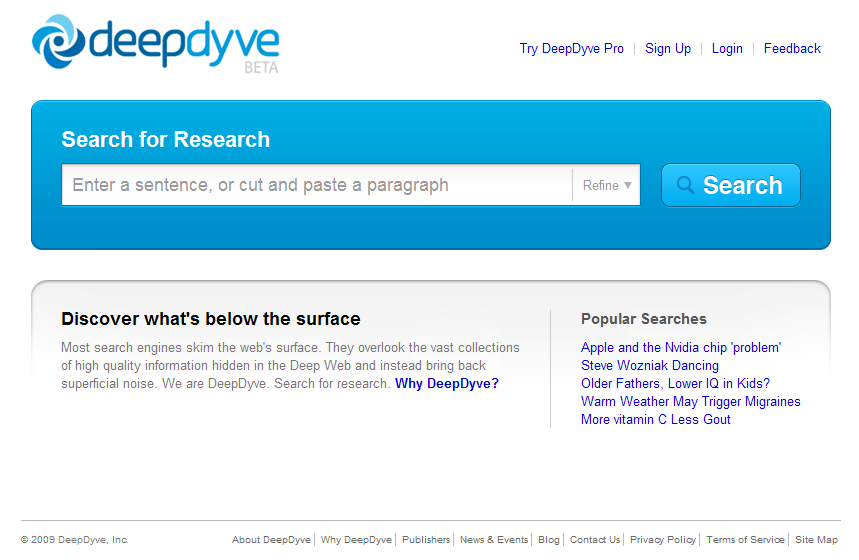Wozniak joins DeepDyve advisory board; is deep web the final frontier?

In another indication that the latest "hot new thing" is the deep Web, Apple co-founder Steve Wozniak is joining the advisory board of the research engine DeepDyve, a search engine designed to scour the "deep web."
The "deep Web," as it's called, is the part of the Internet that isn't currently indexed by modern-day search engines. But the deep Web is an estimated 99.8 percent of the Internet, according to a study by the University of California at Berkeley -- which means any company that is able to successfully wrangle the data in this vast frontier could play a major part in the future of the Web.
Woz clearly thinks DeepDyve has a shot at the title.
According to Wozniak in the press release, most of the information on the web is "collecting dust because nobody's come up with a way to mine the data in a way that's useful to researchers and consumers." Woz believes that DeepDyve has the potential to transform Deep Web search, and he says he's "excited to bring about that transformation."
So what role will Woz play? The company expects that his contributions will focus on the technology behind the company, especially as it relates to the user experience, reports ReadWriteWeb. As a member of the Advisory Board, he will also meet formally with the company twice per year.
DeepDyve is currently known for their KeyPhrase technology, which allows users to type or paste in anything in their search box, from a few words to entire paragraphs. The search engine's algorithm itself was developed by two scientists who worked on the Human Genome Project, which also required using pattern-matching techniques across large amounts of data.
On DeepDyve, the more search terms you enter, the more relevant your results, unlike traditional search engines such as Google and its ilk. That's in line with current trends, in which query length has grown each year, with 8-plus keyword searches having increased 20% year-over-year as of February, 2009, according to a study by Hitwise.
In my experience, DeepDyve has some good underlying tech but needs a massive end-user overhaul. The initial search page is nice, but the results are hard to digest.
But check out DeepDyve for yourself. Think it's the next big thing?
Is deep Web the final frontier?
